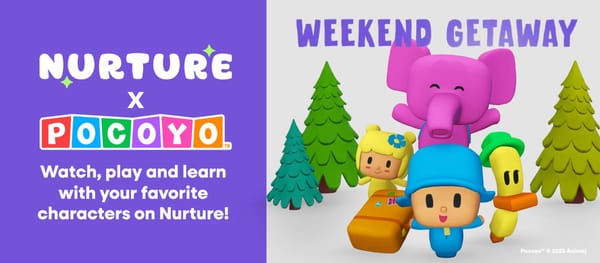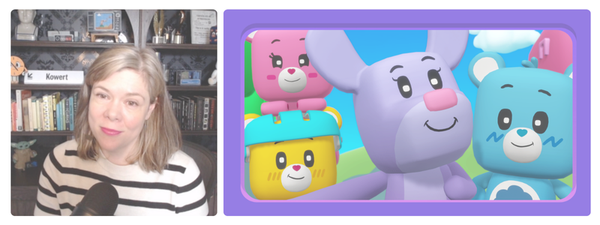Empathy is a skill that grows through practice. Kids develop this skill by interacting with many different kinds of people, such as those from diverse backgrounds, with varied perspectives, and in various roles.
One way to encounter new people, perspectives, and roles is through books, movies, and TV shows, as characters can model various situations. Digital games take these opportunities one step further and offer a way to interact with and immerse oneself in new perspectives.
Rather than just passive observation, video games let kids step into a character’s role, make choices, and see how their actions affect others. This type of interactive play fosters empathy through experience, rather than just exposure.
I’ve dedicated my psychology research on kids’ gaming to understanding and promoting the types of games that aid development. A recipient of the 2025 Games for Change Vanguard Award, I am a big supporter of the Games for Change organization’s work at the intersection of science, play, and positive change. When kids are young, one of the best ways to leverage games for their development is by teaching and practicing empathy, along with the social skills that foster relationships and emotional intelligence.
Nurture is a kids’ app that develops Life Readiness skills such as creativity, curiosity, and critical thinking. All the more important in the age of AI, they're developed through fun, interactive, story-driven adventures. Nurture Academy — that’s where you are right now! — is for parents learning what it takes to raise smart, happy, and resilient kids in our increasingly digital world. We’re glad you’re here!
Read on, then discover how Nurture works or get the app.
Why Empathy Matters
It’s important for kids to understand the feelings of other people in order to build relationships, be better communicators, and foster kindness and compassion for other people. They need to learn to recognize other people’s emotions.
Empathy also helps them with conflict resolution because they’re able to find a connection in broader perspectives than their own. They become kinder, more compassionate people.
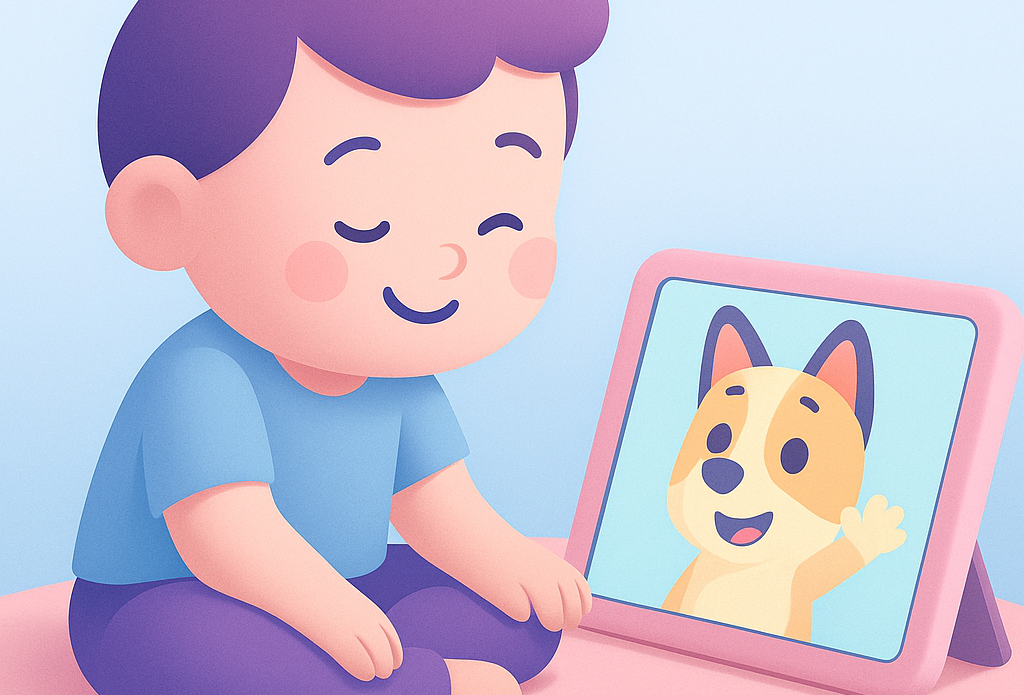
Empathy helps kids build relationships, communicate effectively, and respond with kindness. By recognizing others’ feelings, they not only connect with peers but also become more aware of their own emotions — key to navigating the world with compassion.
How Video Games Can Teach Empathy
Kids develop emotional intelligence as they build in-game and off-screen peer relationships through video games. They can put kids in a new role in an entirely different time, place, and capacity.
Some games are built exceptionally well to teach empathy because they put kids in a new role and let them figure out their feelings, emotions, and perspectives as they navigate the digital world in that role. Parasocial relationships, or those one-sided emotional connections we make with media figures and characters, feel especially real to kids. They might say things like “Bluey is my best friend” or feel genuinely sad when a character gets hurt or goes away.
Understanding those parasocial relationships — in concept and in practice, as they live them out — is important to developing empathy. Any kind of social game requires kids to take on perspectives and engage with the perspectives of others with limited information. In a neat overlap of critical thinking and social skill-building, this is an exercise in piecing together information to make a decision — and making that decision while considering social cues and consequences helps build up empathy.
When games are thoughtfully designed around these ideas, they become powerful tools for teaching empathy — and some are built exceptionally well in that regard.
Game Recommendations
The most effective games for building empathy are the ones that are narrative-based. That is, they bring the player through a story with decisions and consequences. Kids learn how certain characters react to their different actions. Here are a few I recommend for empathy and social skill-building.
Mightier
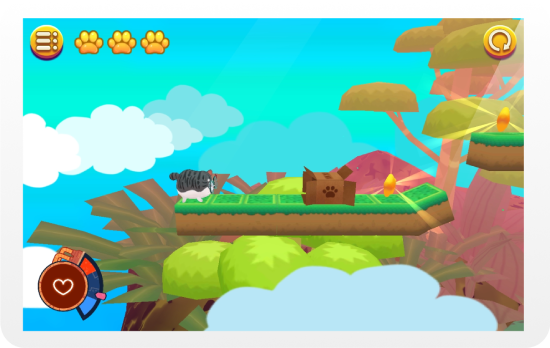
Mightier is a bio-responsive game developed at Harvard Medical School and Boston Children’s Hospital. It uses a wearable heart rate monitor to help kids practice emotional regulation through gameplay. As a child’s heart rate increases, the game’s difficulty adjusts, encouraging them to self-soothe in order to succeed.
This connection between physiological cues and emotional decision-making makes Mightier a powerful entry point for empathy-building. Games like this help kids recognize feelings in other people — and in themselves.
Peace Builders (Minecraft: Education Edition)
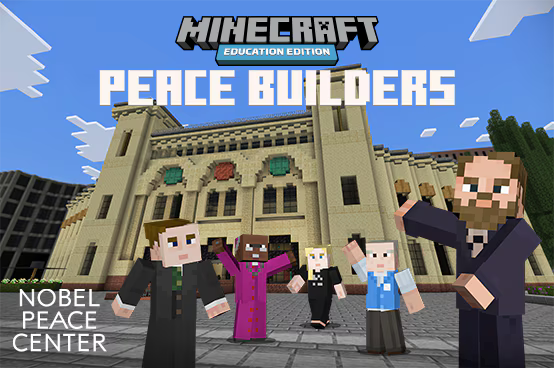
Peace Builders is a Minecraft Education world developed in collaboration with the Nobel Peace Center and Games for Change. Inside the familiar Minecraft environment, players complete challenges that promote empathy, cooperation, and peaceful conflict resolution.
Peace Builders features challenges that are age-appropriate, action-oriented, and scaffolded to help kids see how peaceful actions can create positive outcomes. It’s a strong fit for early young kids ready to collaborate and communicate in digital spaces.
Nurture
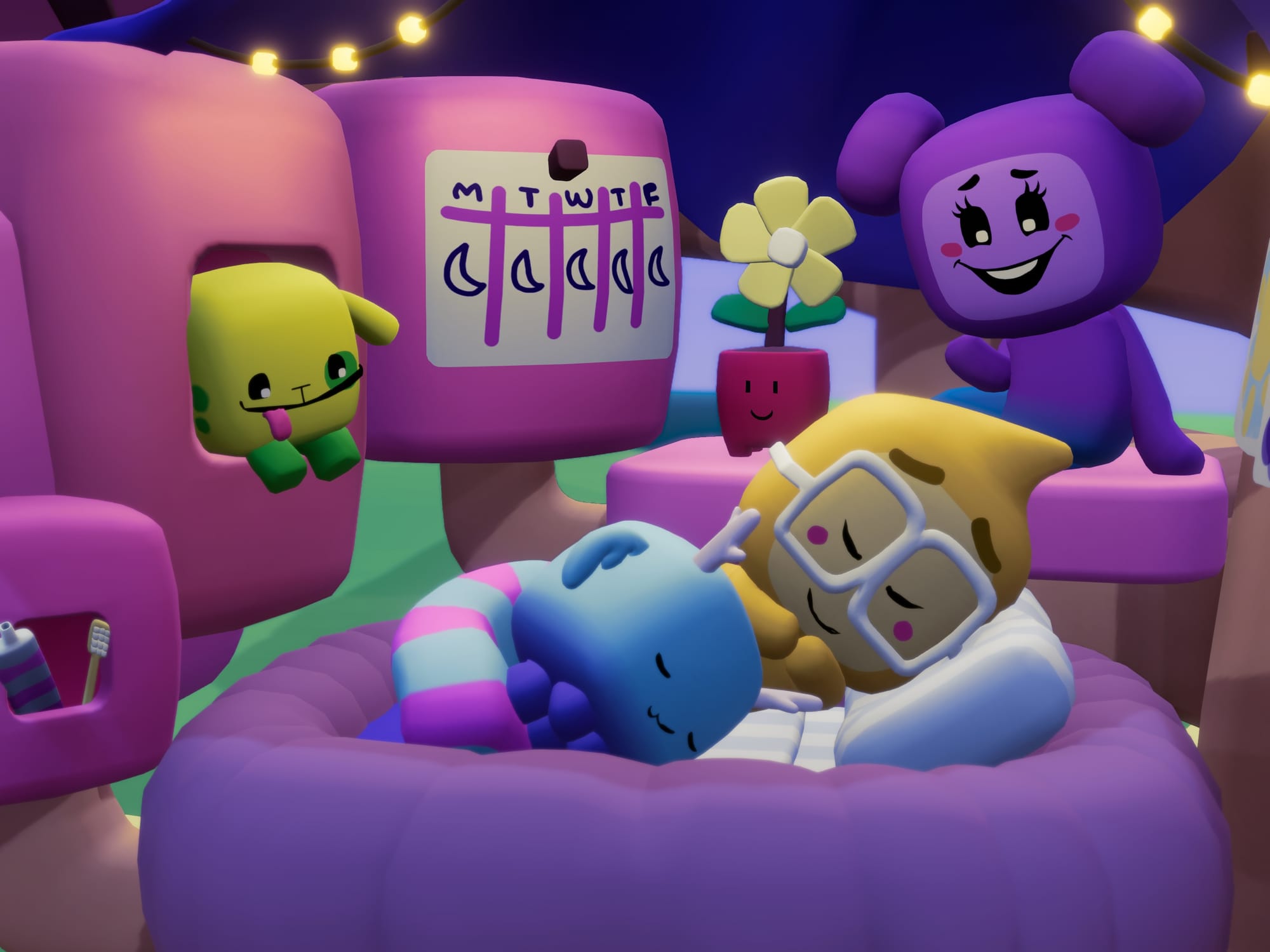
Nurture is specifically designed for children ages 4–7 to explore social-emotional concepts in a developmentally appropriate way. Through colorful, engaging stories, kids practice identifying emotions, resolving conflicts, and making compassionate choices in response to others.
Adventures and tasks in Nurture mirror scenarios in real-life situations, giving kids a safe, guided way to practice handling those. With scaffolded decisions, expressive characters, and built-in caregiver conversation prompts, these levels help young players grow their empathy in playful, meaningful ways.
Parent/Caregiver Involvement
Parents are important models for helping children develop empathy by demonstrating empathy and compassion to others in real-life situations. In fact, some researchers have suggested parents and caregivers are not merely beneficial but essential or synergistic in this role. Guiding children through difficult social scenarios can help them understand different perspectives and help explain (or label) the emotions that they and others might be feeling.
Also, parents who discuss events, whether it be in books, movies, games, or in their day to day lives, are creating opportunities for deeper conversations about human experiences and feelings that kids might not be able to process on their own.
Playing the video game with your kids, or watching and commenting as they play, is a great way to build not only social skills but also empathy (and parent-child relationships). But co-play isn’t the only way to have parent/caregiver involvement to enhance empathy development.
During or after gameplay, asking reflective questions helps kids think about what happened through the lens of empathy. These could be:
- How do you think that character feels?
- How did you feel when you made that decision?
- Why do you think that character acted that way?
- Have you ever faced a decision like this elsewhere in life?
- What could you do differently to help that character or player?
- How do you feel after playing this level?
The point is to focus on asking intentional questions. When we look at screen time as a tool in our digital parenting kit, it can help us frame the types of reflections we guide our kids through.
I also recommend listening to their post-gaming stories with attention and curiosity. When they’re already inspired to share that experience with you, it’s the perfect time to show interest and ask some of these reflective questions. They’ll also carry those reflective perspectives into their next gaming session, stacking the developmental gains every time they pick up their device.
Labelling Emotions On- and Off-screen
Much of the empathy-oriented learning that comes today through digital games is built on the foundation of off-screen activities parents, caregivers, and educators have used for ages.
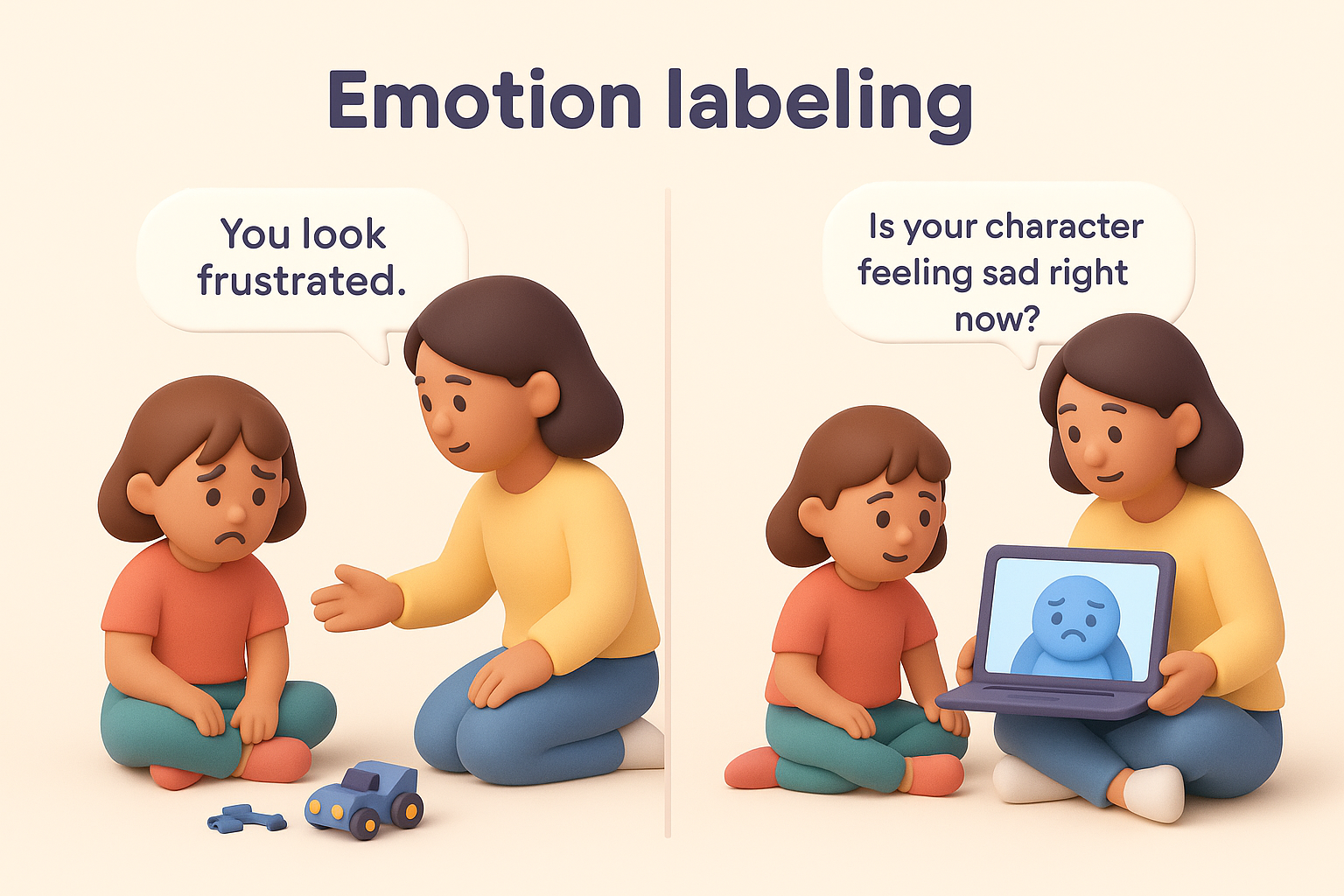
Emotional labeling is a common activity that many parents are already doing with their kids. Emotional labeling is the practice of helping kids name and recognize their feelings, or the feelings of others. For example, saying “It looks like you’re feeling frustrated” or asking “Is your character feeling sad right now?” gives children the language to identify emotions and better understand them.
Off-screen activities in this regard are abundant — think of role-playing, emotion charades, and the plethora of kids' books about emotions. Digital games are just another tool, another opportunity, to experience emotions, including ones that can be difficult or not as common in their day-to-day life.
Embracing Screen-Based Empathy Activities to Teach Social Skills
Empathy isn’t an innate skill. It is something built through experience and practice. Screens can be powerful tools for kids and parents, especially when it comes to building empathy. For young kids, the games shared above take them from unfamiliar feelings to emotional regulators, with the right support and reflection guided by parents or caregivers.
Ask your kid about their game through the lens of empathy and perspective-taking — you might be surprised what they’re already learning. Whether your kid’s game is specifically built for empathy development or not, balancing game time with reflection can incorporate it regardless. You don’t have to make it formal, just show genuine interest in what they’re doing, why they’re making certain decisions, and how the game makes them feel in general and throughout different situations.
Whatever games you and your kids pick up, use them as a chance to develop empathy. Whether that’s co-play, reflective conversations, or simply listening as they explain their experiences, you’re reinforcing critical social skills and helping them process into developmental benefits.
Once you’re comfortable in these empathy-minded situations, you can explore other ways to bridge on- and off-screen experiences to reinforce life skill development. Screens are an embedded part of modern life and modern parenting. When we use and reflect on them thoughtfully, we get away from the parental guilt factor of handing off the tablet and closer to the digital wellness benefits.





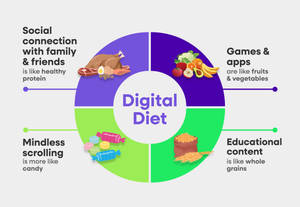
 Copy Link
Copy Link
 Share
to X
Share
to X
 Share
to Facebook
Share
to Facebook
 Share
to LinkedIn
Share
to LinkedIn
 Share
on Email
Share
on Email
